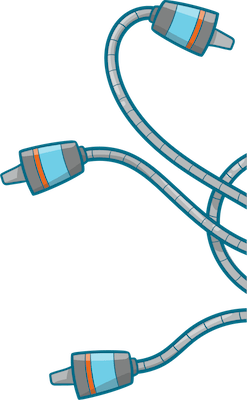A Quick Guide on SEO Content Writing

Have you recently started a blog, and you’re sure that you’ve published high-quality content, but your important pages aren’t climbing the search engine results page (SERP) rankings? Well, you might not have done something wrong with the SEO content writing creation. The culprit might be how you’re managing your SEO tactics.
For web marketers, one of the most powerful tools you can use to improve your page’s rankings is SEO content writing. When writing content for SEO, there are things you need to keep in mind, and that’s what we will be focusing on in this article.
Understanding Search Engine Optimization (SEO)
Search engine optimization, more commonly known as SEO, is a process in the digital space where you make your website more understandable and easier to use and find when people use search engines (Google, Bing, Yahoo, Baidu, etc.)
For most people, when SEO is implemented, a piece of content will rank higher on SERPs immediately. But, what they don’t know is that it goes deeper than that. SEO revolves around the quality of content, links, site architecture, etc., to ensure that the page will rank high. Plus, implementing SEO techniques won’t assure that the site will become on the top ranks instantly.
Earning a top spot in the ranks will take time and effort. So, you just have to be patient.

SEO vs. Paid Advertising
The internet is a vast and ever-growing sea of opportunity. It’s no wonder that many businesses are vying for your attention on it. There are two main ways to generate traffic: SEO (search engine optimization) or paid advertising, but which one should you choose? The answer may not be as simple as you think!
Here’s a breakdown of what you need to know about these two strategies.
Okay, so the very first thing that comes to mind when you think “SEO” is probably searches engine optimization. It’s basically increasing your website content by writing keywords in blog posts and other things like meta tags or alt images on all pages using strategic keyword placement to optimize your site for the search engines.
If you’re looking to increase traffic in a short time period, paid advertising might be right up your alley! You can run ads on Google or Bing using their pay-per-click (PPC) system which means that every time someone clicks an ad, you are charged. Paid ads tend to get high click-through rates, but the downside is that you need to pay for each click.
If you’re looking for long-term traffic growth and lower costs at the beginning of your marketing campaign, SEO might be more effective than PPC advertising because it’s free! SEO can take time depending on how much content you have. The more blog posts, articles, and keywords you include on your website, the better chance you have of ranking higher in search engine results pages (SERPs).
But how do you know which one is right for your business? The answer to that question really depends on what you’re looking for. If you want a short-term fix and are willing to pay for it, maybe PPC is the best choice for you. If your business doesn’t have a ton of funds but does have time to wait for traffic growth, SEO might be more beneficial in the long run.
It all depends on what kind of marketing campaign you want to go with and how much money or patience you’re willing to invest!
Why is SEO Important
The importance of SEO is obvious, but to make sure that you fully understand its concept, here is an example. Suppose a random person on the internet searches ‘biscuits for sale in town x’ – that person is probably looking for a site that sells the best biscuits in town.
If your business is selling biscuits, you’d want to be the first site that would appear on the results page. This, however, isn’t an easy task. You must rank above all the websites selling biscuits in town x. Your SEO techniques should be top quality to ensure you won’t lose the competition.
Keywords and Keyphrases
Keywords are what web users enter on search bars when searching for something on the internet. Keywords or keyphrases can come in different forms. It may simply be a word or a group of words to describe what they’re looking for.
For example, if a person is looking for choices on what computer model to buy, they can enter “best computer models 2021” on the search bar. Or, if their query is location-specific, they can search “computer stores in Paris.”
Since search engines highly regard how keywords are used, you need to ensure that the exact keyword is what you place into the content. If the keyword given to you was computer models 2021, you need to include the phrase as a whole.
Stop Words and Awkward Keywords
At times, keywords may sound normal, but they can’t easily be incorporated into the content. The reason behind this is that web users often tend to input into search bars the first thing that springs into their mind.
When an awkward keyword like “computer store Paris” is a requirement for a piece of content, writing the article could be a challenge. You can’t simply place that keyword into the content since it would sound awkward. For example, if that specific keyword were used, a part of the sentence would look like “The best computer store Paris is located in….”
If, by chance, you encounter this type of keyword, don’t worry. These are pretty easy to handle. The first option you have is to place a punctuation mark in between the two words. Your sentence could look like, “Are you looking for the best computer store? Paris is a great place to look for one.”
This SEO content writing tactic is possible since search engines like Google disregard punctuations, with rare exceptions.
Another option is to use stop words.
What are Stop Words?
Stop words are commonly used words that have little to no value. The most common stop words in the English language are a, the, is, are, in, and etc. In this case, search engines disregard stop words, so you can use them when fixing awkward keywords.
Taking the same example above, we can incorporate a stop word and turn the keyword into “The best computer store in Paris is….” In this case, search engines will disregard the stop word and focus only on the words that have value—computer store Paris.
However, stop words should be used sparingly in SEO content writing. Incorporating them in title tags is not advisable since they may take up too much space and give you lesser characters for more important keywords. For content, though, it is perfectly fine to use as much as you need.
Regardless of which option you pick, the keywords should be your guide in crafting your content, and you must always ensure that they fit into the text naturally. Algorithms have now been developed to be more sophisticated in that they can detect content with poor grammar and unnatural-sounding keywords.

Digging Deeper into SEO Content Writing
What is SEO Content Writing?
SEO content writing is similar to regular content writing. The only difference is that content written using SEO principles has a higher chance of appearing on the first few pages of SERPs. Basically, SEO content will help your pages become more visible to search engines.
If a website ranks high on search engines, there’s a higher chance that people will visit the site. When this happens, it means that there will be more opportunities for conversion.
SEO Writers
SEO writers have the ability to understand the search intent of web users through a set of keywords. Once they find out the intent, they would craft a piece to give users what they want to know. An excellent SEO writer can effectively use keywords to help web users locate the content they need when using a search engine.
SEO Content Writer Skills
- Craft clear, concise, and grammatically correct content
- Give readers what they want to know
- Naturally incorporate keywords into the content without sounding awkward
- Perform research on different types of niches to find credible and trustworthy information
- Apply the right tone when writing while maintaining the site’s branding
- Engage readers using the content
- Manages time to meet deadlines
Writing SEO Articles
Having a good foundation in writing is the first step in SEO content writing. But, to help you out to start your SEO article writing career, here are a couple of critical points for you:
Maximize the Use of Keywords and Keyphrases
When writing articles, you should keep in mind that the keywords and keyphrases you pick should serve as your guide. Through these keywords and key phrases, you can craft content that will fit the reader’s needs.
This way, you are giving them valuable information, a great user experience (UX), and making them trust your website.
To maximize your keywords further, you should ensure that they will sound natural when incorporated into the content. When keywords are placed into the content for the sake of having keywords, they may sound unnatural and awkward to read, which might irritate readers. If this happens, your readers might leave your content without finishing it.
Engaging Content
When planning the structure of your content, it is good to keep in mind that you should factor in how engaging your content should be. Even if all the information you place in your content is accurate and the keywords are optimized, if it looks dull and lifeless, your content won’t rank well on SERPs.
Other elements to keep in mind are the grammar, organization of information, and the readability of your content. When these three are present, it would be easier for your readers to understand what you are talking about.
Once you’ve implemented these techniques, you need to proofread your content so that the piece will be flawless and will look more professional.
Use Headers
The use of headers can ensure that you will have more opportunities to place keywords into the content effectively. Plus, when keywords are placed in headers, their visibility becomes higher.
Aside from this, having headers can also make your text more scannable which improves the user experience.
After crafting SEO content, it is time to link them internally. Visit Internal Link Juicer today to grab a premium internal linking tool for your website.
Keywords: SERP Ranking Booster
Getting your content to rank high on SERPs can be an arduous task. But, with the right SEO content, you can get the top spot in SERPs and get the chance to drive a ton of organic traffic into your website. Follow the steps we’ve listed above to lay a strong foundation for your content.
If you’re planning on linking your important SEO content together, you’d need a reliable tool to manage every link. Visit Internal Link Juicer today to see if it fits your needs.






